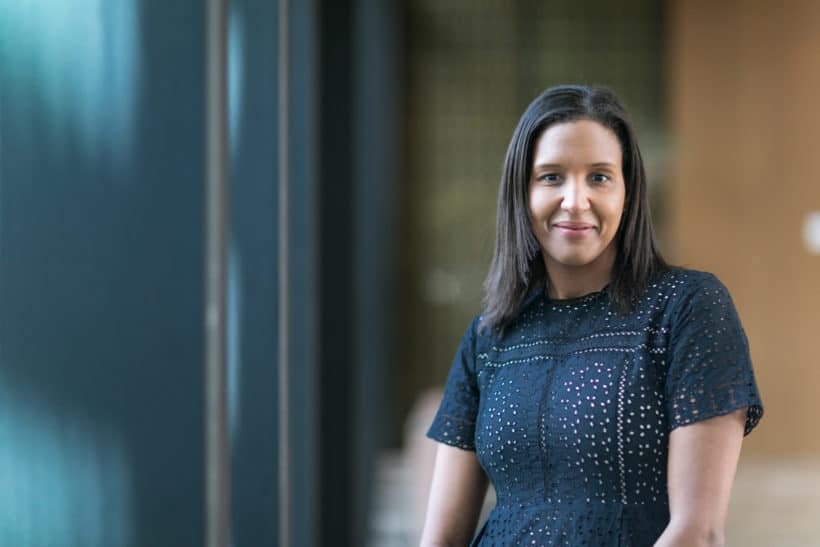The past two years have been anything but normal. The global COVID-19 pandemic has affected every aspect of our lives, derailed plans and set goals back. Nowhere has this been more apparent than on the African continent. However, as we approach the end of the second year of the pandemic, we have had time to regroup, adapt, learn and grow. I argue that recent struggles have put a spotlight on lessons learned over the past decade and lit the path towards achieving the 2030 Development Goals (SDGs).
Over the last decade, Africa has undoubtedly been on a journey of development and transformation. Many African countries have made significant progress towards the 2030 goals, in building strong economies, strengthening democratic institutions, improving agriculture and reducing poverty. These strengths do not come without weaknesses, and the continent continues to battle against challenges such as
malaria, vaccine inequality or inadequate sanitation. A child born in Africa today is still at risk of not receiving a full, high-quality education or decent health care – and all of these issues have been exacerbated by the pandemic. This must change.
There is no one-size-fits-all approach to sustainable development, which is why we must also tailor our solutions. Any methods required to achieve real change need to take into consideration the development stage, socio-political, cultural and physical context, unique needs, and existing governance structures of individual countries. That is why we must foster African research and development and advocate for our own continent’s development. Only then can we achieve a collective, coordinated and cooperative approach to addressing Africa’s challenges.
Over the past two years, disruptions caused by the pandemic have highlighted the need for country ownership and African solidarity so that we no longer rely so heavily on foreign aid and funding. This has been abundantly clear in two sectors that we work in: malaria and Neglected Tropical Diseases (NTDs), which have both made a comeback across the continent due to disruptions, supply shortages and overburdened healthcare systems.
We also can’t discount the importance of female leadership and representation. To ensure that Africa progresses in its transformation journey, where human rights and gender equality are central, women must be empowered to take on decision-making and leadership positions at all levels. That is why earlier this year we launched the Voix EssentiELLES initiative, working with community organisations in Burkina Faso, Cote d’Ivoire and Senegal. Being part of a women-led organization, I am passionate about engaging women in the decision-making process, to ensure that policies are developed to better serve them and their unique issues.
As COVID-19 continues to loom across Africa, we’re at an important juncture. At the start of the pandemic, SDG-related investments in Africa fell by 51%. Although no one could have anticipated the pandemic, now is not the time to stand still; instead, we must focus on building back, and continuing onwards in our development journey – and women must be at the heart of this journey. While sub-Saharan Africa is the only region where women make up the majority of those who are self-employed, women also face significant barriers to growth. There are significant imbalances between men and women in access to funding, training and skills development, accessing professional networks and overall participation in competitive environments.
This imbalance was apparent when we launched the Africa Young Innovators for Health Award with IFPMA. The Award program attracted over 300 applications, yet only 21% were from women. That is why, on the sidelines of this week’s Forum Galien Africa, we decided to take concrete action by launching the Women Innovators Incubator. This program aims to address gender equality in the health innovation landscape by leveling the playing field and giving extraordinary women a chance to bring their projects to fruition. Women who participate in the program will be one step closer to building a scalable and sustainable business that seeks to tackle some of Africa’s most pressing healthcare challenges.
After all, who is better placed to solve African health problems than our own people? I believe that Africa must champion its own solutions and foster talents across the continent, as we move forward. Leading experts and civil society organizations are already playing a vital role in driving action and investment further, and we must continue to elevate their voices so that policymakers understand their concerns and proposed solutions.
Achieving the SDGs set by the world will indeed be a challenge for Africa, however I remain hopeful. With the world’s youngest population, we have the energy and the passion of youth on our side.
No longer can we do things the old way, it’s time instead we take an African approach to sustainable development. We already have so many talented people working hard to reshape Africa, and through continued investment and innovation, our dreams of achieving health and prosperity for all can become a reality. Although no one can predict what the next decade will hold, I know that through continued teamwork and partnership, and by utilizing the incredible talent that our continent has to offer, we will be able to end suffering for good and unlock a greater Africa for all.

Yacine Djibo, Founder and Executive Director of Speak Up Africa, a Senegal-based non-profit organization advocating for sustainable development in Africa.

